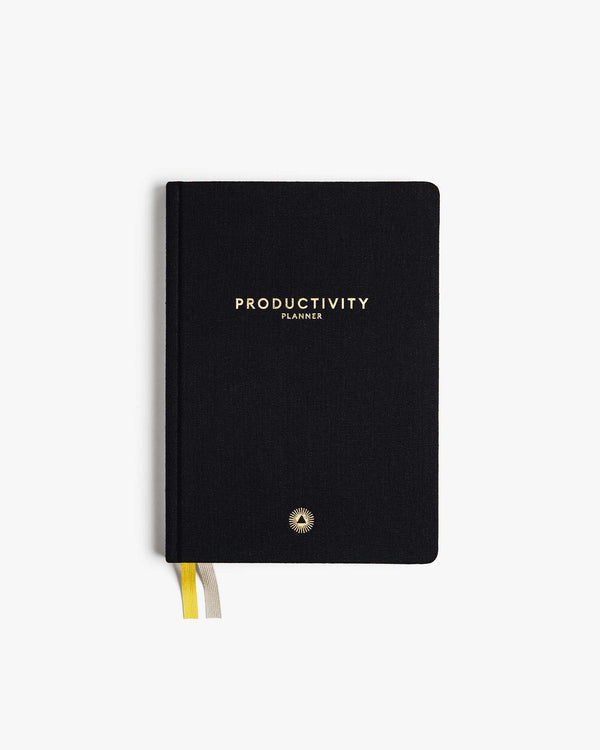Taking a Mental Health Day

Stress, anxiety, tiredness, and mental health ups and downs can be part of our everyday lives. And while taking days off when it comes to our physical health is a common thing to do, asking for a mental health day is still challenging and new. Despite many social efforts to normalize mental health issues and therapy, some people still hesitate to talk about this, as they become overwhelmed with uncertainty, fears, and, sometimes, guilt, and shame.
Mental health is something we are expected to be able to “pull through”, something we can postpone and maybe deal later with because work and a myriad of other life responsibilities come first. However, mental health is just as important as physical health, work, or relationships, because there is no one without the other.
For those who already suffer from certain mental health symptoms, working without having the possibility to take a day off for emotional or mental health reasons, or having to lie about why they are calling in sick can only become more tough and challenging.
Knowing when and how to ask for a sad day off can play a crucial role in maintaining your emotional well-being and preventing not only a drop in performance, but also a drop in your personal and business relationships, overall health, and happiness.
This day should be a special day when you destress, heal from a burnout, regain mental strength, or take the time to pick up the pieces after a life-altering change. Mental health day won’t take your symptoms away, nor will it solve the challenges you’re facing in life, but, sometimes, it can be the best––and wise––thing you can do to take care of yourself.
Here’s when, how, and why to take a mental health day.
When to Take a Mental Health Day
When is the right moment to take a mental health day? How do we know we need a time out? Since many people can handle stress for a long period of time, it’s difficult to decide when we need to take time for ourselves and heal.
Research in the US shows that although people are entitled to take a sick leave for a number of reasons including mental health issues, most of them are unlikely to take days off when they’re struggling psychologically because they are scared or ashamed to do so. Other factors that impact our decision to prolong taking a “sad day” off is that we want to keep on earning money and some companies don’t allow a paid day off without a clear medical reason, forcing employees to take unpaid leave.
Symptoms Indicating You Need Time Off
A good sign that you need to take a break and commit to self-care is feeling overwhelmed. If you’re either irritated and hypersensitive or somehow absent and find it difficult to focus on anything that matters to you, it can mean that both your mind and body are overwhelmed.
Try looking at your life as if it was a palette of different things that define you, like what you do, your family and other important relationships, social life, hobbies, personal time, and so on. If you feel like it’s difficult for you to participate in everything else except for the things that are fun, it may be a sign that you are burnt out and could use a break.
Most stressful situations that will finally lead to you taking a day off will develop over time. You will be able to notice changes in the way you feel in most cases. But, sometimes, it can also happen suddenly and inexplicably––you wake up one day and feel off. That’s fine, too. Listen to your body and mind and give yourself what you need.
How to Ask for a Mental Health Day
So, you’ve decided to have a mental health day, but the question is: How do you ask for it? Although the de-stigmatization of mental illness is a growing movement, many employers are not yet aware of how mental health issues affect the well-being and productivity of their employees.
Schedule in Advance if Possible
To avoid becoming even more stressed, you can schedule your mental health day off in advance to make sure that you have the time to organize your workload and life routine accordingly.
Of course, it’s not always possible to predict what will happen. On such days, it would be quite helpful if you could gather the strength to call your employer or team member and simply explain the situation. It’s crucial for you and them to understand that one day of your absence will harm your efficiency much less than working mentally overwhelmed and emotionally drained.
Assess the Workplace Atmosphere
The profile of the company you work at, relationships with your manager, and the overall workplace atmosphere will dictate the level of openness you’ll be able to have about your day off. However, whatever the case is, remember that you are not obliged to disclose personal and intimate information about your condition, nor you have to share details about potentially stressful or unpleasant events from your private life, unless you feel like doing it.
Tips on How to Ask for a Mental Health Day
Choose Your Words Wisely
- You can start small: simply say that you are requesting a day off. If the manager asks you additional questions, think about an appropriate answer in advance. For example, you can say:
“I think my well-being and productivity at work are in a slump. Taking a day off to recharge would seriously benefit me and my work.”
- If your superior values and acknowledges the importance of mental health, this should be easy to communicate. But, if the case is the opposite, you should emphasize why this is good not only for you, but for the company as well. Here’s an example of what to say:
“I’ve been working very hard over the past couple of months, and now I feel extremely exhausted. There is a lot of work to be done ahead of us, which is why I think that both my work and me, personally, would benefit from taking some time off and recharging my energy.”
- Talking about burnout and loss of energy is more acceptable in some working environments than talking about depression or anxiety. Fine-tune your request, because it’s more important to succeed at getting this day off than explaining in detail what is going on with you.
Join Forces
Finally, if you think that your team members could benefit from mental health awareness at the workplace, organize an informal meeting and talk to people from your department/company about their attitudes towards mental well-being and having a day off.
It’s always good to brainstorm as a group and share your concerns about work-related issues that have to do with mental health, such as feeling pressured and anxious, missing deadlines, lacking focus or will to do something, missing creativity in problem-solving, and so on.
A group of like-minded people has greater power than one individual and this way, by joining forces, you can influence the mental health policies of the company management. This will be beneficial for everyone, you included.
How to Use a Mental Health Day
How you spend your day off is the most important part of the process. The first thing you can do is think about the root of your stress and apathy: What is the reason you are here?
Pressure of deadlines? Stress and fatigue because of long working hours? Screens and information overload? Tension in your personal life? Or, maybe, you feel disconnected from who you really are? Whatever the answer is, untangling the source of your exhaustion and languishing will help you combat those symptoms and focus on what you truly need.
The next step is to choose your activities.
Connect With People
Some people reap the greatest benefits of taking a day off by spending time with people they love. If the cause of your burnout and sadness is a lack of time with your loved ones, you can center your mental health day around spending time with them.
For example, invite the people you love to dinner at your home. It can be your family members, close friends, or anyone you find important and inspiring. You can either cook by yourself and find relaxation in that process, split this activity with someone, or order food if you don’t feel like spending time in the kitchen that day.
There are many ways to spend meaningful time with people dear to you––choose what works best for you:
- Nature day with your friends and/or family;
- An afternoon of board games;
- A picnic or a short trip to another city;
- Movie day or night, etc.
Relax
Your mental health day can be all about relaxation. Here are some of our ideas for proper relaxation, but feel free to choosing something that soothes you:
-
Stay at home, extend your self-care rituals, and do the best kind of nothing that regain your energy;
- Attend a yoga class in a group or do yoga at home;
- Go swimming;
- Take a walk in nature;
- Go to a spa.
Have Fun
If you feel like having fun is what you’re missing in your life, center your mental health day around activities that inspire you to become playful, creative, or that make you laugh.
This can include a wide range of activities:
- Bike riding;
- Dancing;
- Playing an instrument;
- Painting;
- Sculpting;
- Playing board games;
- Going out for coffee with friends.
“Fun” has a different meaning to each and every one of us, so if this is what you need, ask yourself when was the last time you felt carefree, relaxed, and light-hearted, and try to engage in an activity that will help you achieve that feeling again.
What to Expect as a Result
A mental health day won’t resolve all your problems in life, but it will lead to certain improvements. It will let you zoom out, clear your head, and gain a different perspective on what’s actually going on. Here are some of the outcomes you can expect from taking a mental health day:
- Increase in energy;
- Better emotional coping;
- Return of the control;
- Feeling relaxed;
- Change of perspective;
- Evaluation of the situation;
- Valuable insights;
- Improved overall wellbeing;
- Inspiration, etc.
As Audre Lorde said, your self-care is not self-indulgence, it is self-preservation. Taking care of yourself and asking for a day off when you need is a part of achieving peace of mind, living a joyful happy life, and creating a positive change within yourself and the world around you.











